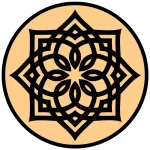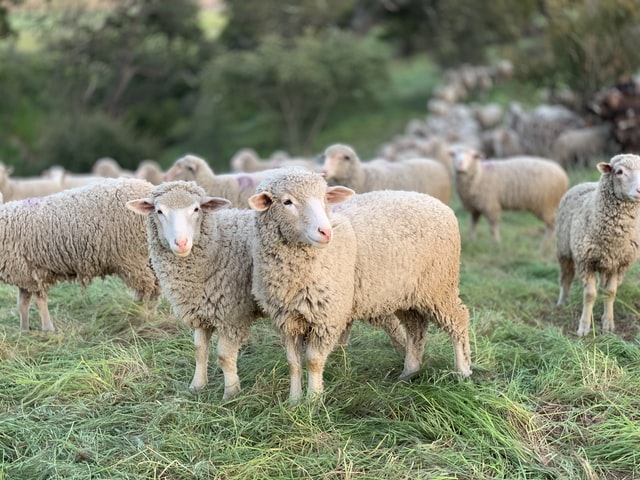Avui en dia acostumem a veure Péssah com una festa única, que dura set o vuit dies, depenent d’on visquem. En realitat, però, celebrem dues coses ben diferents. I una de les explicacions la trobem a la cinquena alià de paraixat Bo.
Durant el Seder de Péssah una de les tradicions, alguns dirien obligacions –i alguns diríem que és una obligació fer-ho de forma constant–, és fer preguntes. Una de les preguntes típiques és la que fan els petits: i què és aquesta avodah, aquest servei, per tu? (Xemot, Èxode, 12:26). Avodah es tradueix com servei o feina, però en el sentit ritual o religiós.
Però a què es refereix, la pregunta sobre aquesta avodah? A la festa de Péssah? Doncs no. Es refereix al sacrifici de Péssah. Perquè no és el mateix. Hi ha el sacrifici de Péssah, i la festa de les matzot. I la pregunta original que apareix a la Torah, és sobre el sacrifici i sobre pintar les llindes de les portes amb la sang del sacrifici.
Sforno ens interpreta la pregunta: Què és aquest servei per tu? Ja que no és en un dia de convocatòria santa, com ho són els altres sacrificis, ni és durant el mateix temps que altres sacrificis, que es fan després de l’ofrena del matí i abans de l’ofrena del vespre. I com és que no n’hi ha prou amb un sol sacrifici per tot Israel, com és el cas amb la resta de sacrificis? (Ovadiah ben Jacob Sforno, Commentary on the Torah, traduït i comentat per Rabí Raphael Pelcovitz, p. 339)
Perquè el sacrifici de Péssah, l’original, es va fer el dia 14 de Nisan a la tarda, i cada casa i cada família va fer-lo (Xemot, Èxode 12:3-6). I llavors? Què és aquest sacrifici, aquesta avodah, aquest servei? És el sacrifici del Péssah del [nom de les quatre lletres] (vers 27). Aquest sacrifici es fa per marcar el futur “salt” del destructor “per sobre” de les cases dels Fills d’Israel durant la nit. I com que no està permès fer sacrificis durant la nit, cal fer-los en un moment anterior a la nit, és a dir cap al tard. I cadascú ha de portar el seu propi sacrifici, perquè el miracle de Péssah va succeir a cada un dels individus, i no a la comunitat com a tal (Ovadiah ben Jacob Sforno, pp. 339-340).
El vespre del 14 de Nissan se sacrifica el principal déu egipci, en forma d’ovella. I durant la següent nit se sacrificaran tots i cadascun dels primogènits a Mitsraïm. La llibertat va ser pagada a un preu molt alt, i no ens referim a la quantitat d’ovelles, sinó que només es va poder aconseguir després del sacrifici dels primogènits.
Per això, també, el miracle de la llibertat, de poder sortir de Mitsraïm, s’esdevé per a cada persona i no és una cosa comunal. Cada casa, cada família va haver de responsabilitzar-se, aconseguir un xai, sacrificar-lo i pintar les llindes. A la casa on no es van pintar les llindes, no hi va haver miracle. Potser per això se’ns recorda que cada persona, a cada generació, ha de veure’s a ella mateixa com si estigués sortint de Mitsraïm.
Aquesta iniciativa es torna a veure una setmana després, a la riba del Mar de les Canyes. Per poder sortir de Mitsraïm cal prendre primer la iniciativa i responsabilitzar-se. I se’n surt a títol individual.
Nowadays we usually see Pesach as a single holiday, which lasts seven or eight days, depending on where you live. In reality, we celebrate two different things. One explanation about why we find it in the fifth aliyah of parashat Bo.
One of the traditions during the Seder, some would say obligations –and some would say it is an obligation to do that constantly–, is to ask questions. One typical question is the one the young children do: what is this avodah, this service, to you? (Shemot, 12:26). Avodah translates as service or work, in a ritual or religious sense.
But what, then, is all about that question? It’s about the Pesach sacrifice because there is the Pesach sacrifice and the holiday of the Matzot afterwards. And the original question in the Torah is about the sacrifice and painting the doorposts with the blood from the sacrifice.
Sforno interprets the question: What is this service to you? As it is not a day of holy convocation, as are other sacrifices, nor is it in the time frame of other sacrifices, which are brought after the morning daily sacrifice and before the evening daily sacrifice. Also, why shouldn’t one offering suffice for all Israel, as is the case with other communal sacrifices? (Ovadiah ben Jacob Sforno, Commentary on the Torah, traduït i comentat per Rabí Raphael Pelcovitz, p. 339).
Because the Pesach sacrifice, the original one, was on the 14th of Nisan in the afternoon, and every house and every family did it (Shemot, 12:3-6). And then what? What is this sacrifice, this avodah? It is the sacrifice of God’s Pesach (line 27), and it’s to mark the future passing over on the following midnight. And since we can’t sacrifice at night, we must offer it at a time which continues into the following night. This meaning in the evening. And each one must bring this sacrifice, for the miracle occurred with each individual as such, not to the community as a whole (Ovadiah ben Jacob Sforno, pp. 339-340).
In the afternoon of the fourteenth of Nisan the Egyptian god, in the form of a lamb, is sacrificed. And in the following night, all the firstborns in Mitsraim will also die. Freedom came at at the highest price, and that’s not about the number of lambs. It was only at hand after the sacrificing of the firstborn.
Maybe it’s for this that the miracle of getting out of Mitsraim happens to each person and it’s not a community event, as Sforno says. Each house and every family hat to take responsibility and get a lamb, sacrifice it and paint the doorposts. There was no miracle in the house without blood on its posts. Maybe it’s for this that we are all reminded that every person, in every generation, has to see itself as if they were going out of Mitsraim.
We will see this same personal responsibility a week after walking out, at the shore of the sea of reeds. Just before the parting of the sea. To be able to go out of Mitsraim we have to take responsibility. And we walk out by ourselves.









Ohr HaChaim Yomi – Emor